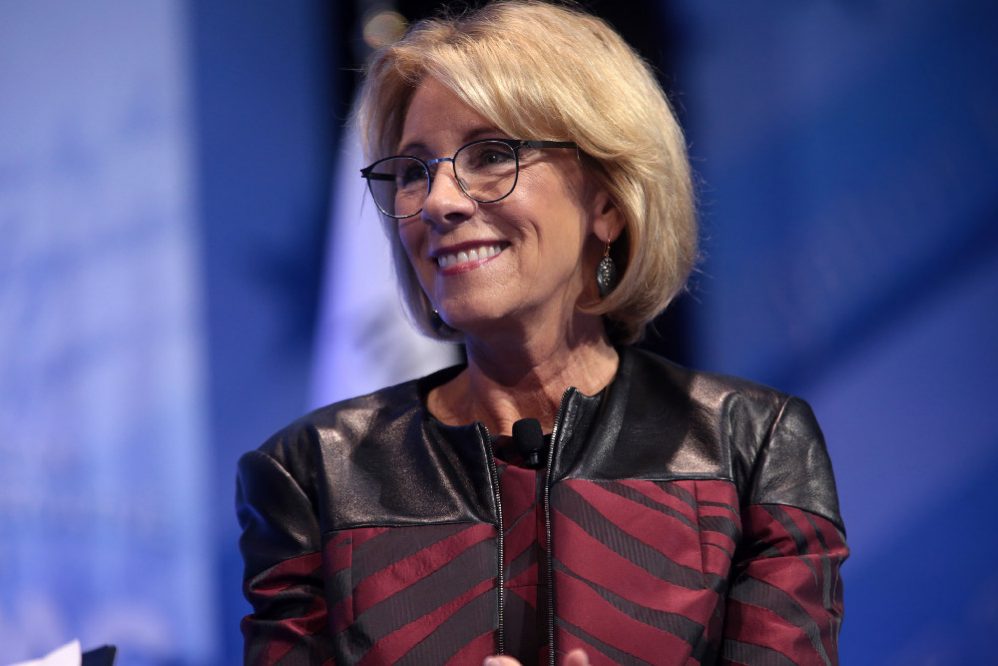
The Department of Education published a final rule Wednesday that expands religious liberty protections on college campuses and allows DOE to suspend or cut federal funding from colleges that violate the First Amendment.
Known as the “Improving Free Inquiry, Transparency, and Accountability at Colleges and Universities” final rule, it ensures the equal treatment of religious student groups at public universities, and “provides clarity for faith-based institutions with respect to Title IX.”
“This administration is committed to protecting the First Amendment rights of students, teachers, and faith-based institutions. Students should not be forced to choose between their faith and their education, and an institution controlled by a religious organization should not have to sacrifice its religious beliefs to participate in Department grants and programs,” said Secretary of Education Betsy DeVos.
If public universities fail to give religious student groups the same rights as other campus organizations, such as use of campus facilities and access to student fee funding, they could lose federal funding.
The final rule also seeks to promote “free inquiry” and to protect “academic freedom” on college campuses. “Denying free inquiry is inherently harmful at any institution of higher education because students are denied the opportunity to learn and faculty members are denied the opportunity to freely engage in research and rigorous academic discourse,” the rule reads.
In extreme cases of First Amendment violations, DOE can determine a university is ineligible for future grants. Private universities can also face the same consequences if found violating their own speech codes.
“These regulations hold public institutions accountable for protecting the First Amendment rights of students and student organizations, and they require private colleges and universities that promise their students and faculty free expression, free inquiry, and diversity of thought to live up to those ideals,” DeVos explained.
While the final rule claims that universities must allow for differing ideas and viewpoints on campus, it also gives private or religious institutions the freedom to adopt their own speech standards, so long as they comply with them.
“Religiously affiliated institutions, in freely exercising their faith, may define their free speech policies as they choose in a manner consistent with their mission,” the rule states.
The rule also states that “religious student organizations should be able to enjoy the benefits, rights, and privileges afforded to other student organizations at a public institution” as well.
The final rule will going into effect 60 days after the date of official publication in the Federal Register.